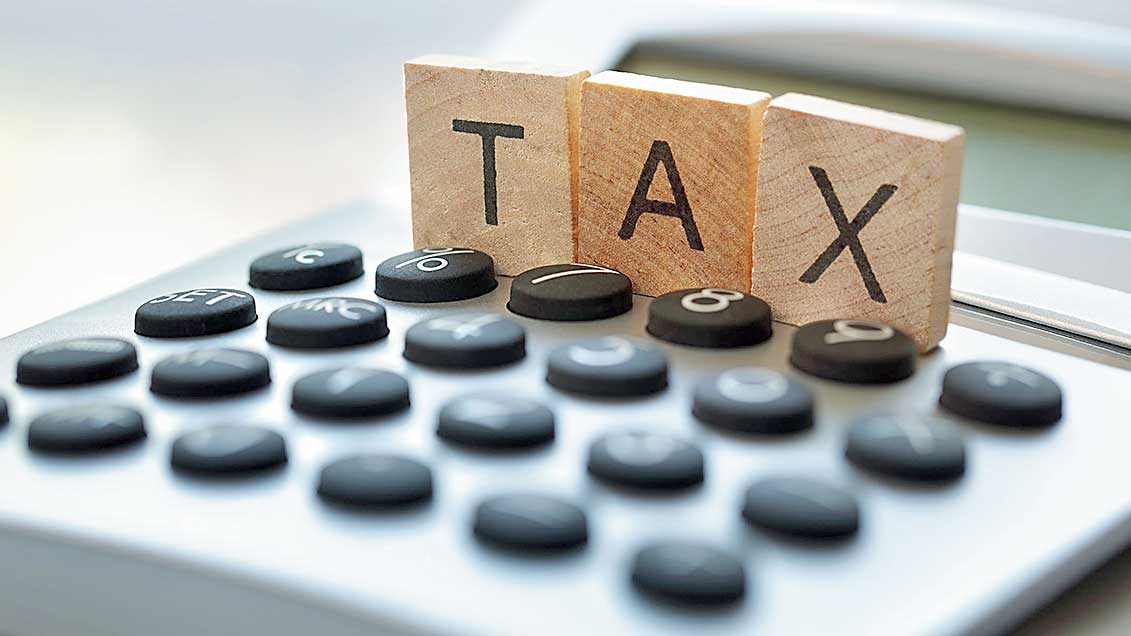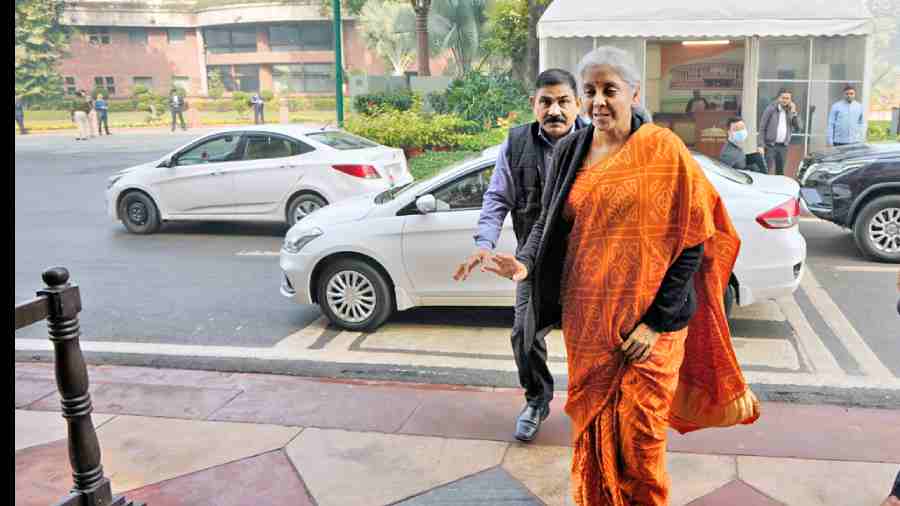The bitterness in the relations between the Centre and the states has started to escalate over a contentious issue that has been simmering for years: the surge in cesses and surcharges that the Centre has been levying with no desire to share the proceeds.
On Tuesday, the issue boiled to the surface again when the Centre acknowledged that the amount it collects in the form of cesses and surcharges had swelled to 28.1 per cent of gross tax revenues in 2021-22.
This in all probability includes the GST compensation cess which devolves to the states — which worked out to 4.6 per cent in 2020-21.
Money collected through cesses and surcharges does not have to be shared with the states under Article 270 of the Constitution, and this has been a sore point in Centre-state relations.
Raising a starred question in the Rajya Sabha, CPM MP John Brittas sought details about the two levies and asked whether the Centre had any intention of accepting the Fifteenth Finance Commission’s recommendation that the amount ought to be shared.
The finance ministry replied: “As per provision under Article 270 of the Constitution of India, all taxes and duties referred to in the Union List, except the duties and taxes, surcharge on taxes and duties and any cess levied for specific purposes under any law made by Parliament shall be levied and collected by the Government of India and shall be distributed between the Union and the State.”
The finance ministry added: “The aforesaid Constitutional provision forms the basis for cess collection and utilisation by Union Government.’’
Later, replying to supplementary questions, junior finance minister Pankaj Chaudhary said there was no such detailed recommendation by the 15th Finance Commission. He maintained that previous governments had also levied cess, adding that the money collected through cess and surcharge goes to the states through programmes funded by the Centre.
The Finance Commission has not explicitly recommended that the cesses and surcharges should be shared — though it has recognised that the states have a very sound basis for making the demand.
The commission had said: “Cesses and surcharges earmarked by the Union Government have grown over time, amounting to about 15 per cent of its gross revenues, reducing the proportion of Union revenues eligible for transfers to States from the divisible pool.”
“Keeping in view our recommendation and approach for simplification of tax structures and reduction of dependence on cesses and surcharges suggested in our report, we have also desisted from recommending any new or additional cess or surcharge for this purpose which would have accrued to the Union Government as an additional source of revenue,” the commission added.
The commission estimated that the two levies would rise as a percentage of the gross tax revenue during its reference period till 2025-26.
“These cesses and surcharges (excluding GST compensation cess) averaged 13.1 per cent of the gross tax revenue during the 2016-17 to 2018-19 period. This component amounted to Rs 3.18 lakh crore in 2018-19. With the increase in the special additional duty on excise and road cess on petrol and diesel in 2020 and with the assumption that there will be no further change in their current structure, these cesses and surcharges are estimated to average 18.4 per cent of gross tax revenue between 2021-22 and 2025-26.”
Later, during the discussion on the Appropriation Bill in the House, Brittas raised the issue again and accused the Modi government of failing to embrace the principles of cooperative federalism.
“The powers of the states are being usurped day by day,” he said.
Referring to the reply given by the government to his question, he said the surcharge and cess collected this year would amount to Rs 7.06 lakh crore. Ten years ago, the amount collected through this route was just Rs 49,000 crore.
“When the states are being starved, when the Finance Commission recommendations are not implemented, they say that they are giving us the surcharge and cess in the form of centrally sponsored schemes. We don’t want this; we want the money. You sit in Delhi and make schemes for the states. This is a federation…. Much of your centrally sponsored schemes are being used to trumpet your leader’s largesse to the people. We don’t require that. You (must) give the money to the states; we deserve the money. We will devise a scheme. We will implement it. That is the only way in which this country can be a true federation,’’ the MP said.
It wasn’t immediately clear whether the states had worked out a scheme to share the proceeds from the cesses and surcharges.
The Finance Commission report indicates that there had been a lot of discussion on the issue when it met leaders from various states.
“State Governments… represented that the Union has significantly shrunk the divisible pool over time through excessive and rising cesses and surcharges….the divisible pool as a percentage of the gross revenues of the Union has been consistently falling as more and more resources are raised through non-shareable cesses and surcharges; currently the divisible pool accounts for just two-thirds of gross revenues,” the commission said in its report.
“States further agreed that the Finance Commission should, therefore, work out a mechanism so that the 50:50 division should objectively account for the cess and surcharges currently retained by the Union from gross revenues,” the report added.












